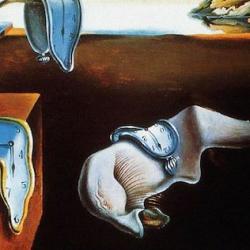Here’s an effort to summarize Robert Jenson’s take on God-and-time, written with faux-Jensonesque pithiness.
Is God eternally and infinitely the eternal and infinite God that He is? Of course. He’s God.
Is God dependent on creation for His fulfillment? Of course not. He’s God.
The biblical God uniquely does not try to escape time. All other gods do; that’s what makes them gods.
The world is what it is. History is what it is. No use worrying what might have been.
God promises to show mercy, and give Himself to His people. These promises are given to a real people, in real time.
Those promises come true, or they don’t.
If they don’t, then God is not in fact the God who shows mercy.
If they do, then God is in fact the God who shows mercy. He could not be the God who shows mercy if He failed show mercy. By definition. His being as the God who shows mercy is dependent on what He does in time.
Given the kind of world that is, this mercy must involve the Cross and Resurrection. God could not be in fact the God who whose mercy without crucifixion and resurrection.
Think of the contrary: God could be a God bursting with mercy and grace, but refuse to make or keep promises. But then He wouldn’t be the God of mercy and grace.
Or, what amounts to the same thing: God could be a God of mercy and grace “in Himself,” without reference to the creation. But then God would no longer be the biblical God, but an idol who does what all gods do – provide security against time.
(I posted a version of this back in 2009 on in earlier incarnation of this blog, leithart.com).














